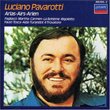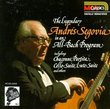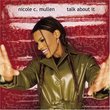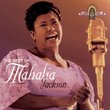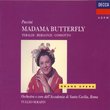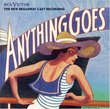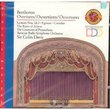| All Artists: Wolfgang Amadeus Mozart, Christoph Willibald Gluck, Susan Graham, Harry Bicket, Orchestra of the Age of Enlightenment Title: Susan Graham - Mozart & Gluck Arias ~ Il tenero momento Members Wishing: 0 Total Copies: 1 Label: Erato Release Date: 2/6/2001 Genre: Classical Styles: Opera & Classical Vocal, Historical Periods, Classical (c.1770-1830) Number of Discs: 1 SwapaCD Credits: 1 UPC: 685738576821 |
Search - Wolfgang Amadeus Mozart, Christoph Willibald Gluck, Susan Graham :: Susan Graham - Mozart & Gluck Arias ~ Il tenero momento
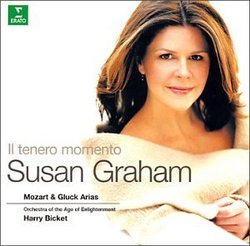 | Wolfgang Amadeus Mozart, Christoph Willibald Gluck, Susan Graham Susan Graham - Mozart & Gluck Arias ~ Il tenero momento Genre: Classical
The "tender moment" of this collection's title comes from a stunning scene in an opera Mozart wrote as a teenager, Lucio Silla. It refers to the heightening of sensitivity and expectation that love, above all else, instill... more » ![header=[] body=[This CD is available to be requested as disc only.]](/images/attributes/disc.png?v=15401716) ![header=[] body=[This CD is available to be requested with the disc and back insert.]](/images/attributes/disc_back.png?v=15401716) ![header=[] body=[This CD is available to be requested with the disc and front insert.]](/images/attributes/disc_front.png?v=15401716) ![header=[] body=[This CD is available to be requested with the disc, front and back inserts.]](/images/attributes/disc_front_back.png?v=15401716) |
Larger Image |
CD DetailsSynopsis
Amazon.com The "tender moment" of this collection's title comes from a stunning scene in an opera Mozart wrote as a teenager, Lucio Silla. It refers to the heightening of sensitivity and expectation that love, above all else, instills. But the Mozart example (with which the album ends) might also be taken as a metonym for the way in which the most powerful emotions, including love in all its guises, from ardor to lament, can intensify the moment. It's a process that opera itself tries to replicate through the wonderful alchemy of music, text, and character. In her second recording for Erato (following the extraordinary Ned Rorem anthology), American mezzo-soprano Susan Graham focuses on the "tender moment" as depicted by Mozart and Gluck. These two masters of opera aren't often paired, though each in his highly distinct, individual way insisted on elevating the genre beyond the level of frivolous entertainment and display that the century they shared found so tempting. Graham's program of six scenes from each suggests some striking moments of common ground in terms of the larger classical aesthetic, though the success of the whole enterprise is mixed. Certainly, Graham makes a case for the radiant beauty of Mozart's opera seria writing (her own operatic debut was in Lucio Silla), which still tends to be undervalued--as though it were simply a case of the composer being enchained by excessive genre "conventions." There's a magical balance between form and content, substance and decoration in "Parto" from La Clemenza di Tito (notable enough for Antony Pay's melting basset clarinet obbligato), and in the lengthiest selection (the last one, from Lucio Silla), though Graham here exposes the instability of her lowest register. But to whatever extent Mozart and Gluck might intersect in sensibility, the latter conjures a remarkably different universe when he depicts love's loss and abandon. Somehow the scenes from Iphigénie and, especially, Orphée et Eurydice (in its French version here) don't register as stylistically different enough and they lack that strange, altogether Gluckian combination of objective purity with emotional extremity. And as Mozart's adolescent Cherubino, the kind of intensity that Graham conveys so convincingly on stage comes across a tad too contrived. On disc alone, not all of the selections can capture the spell Graham typically casts in live performance through her combination of singing, "emotional intelligence," and stage presence. Still, it's an intelligent program, and Graham has proved to be a winning exponent of period performance style (as in 2000's superb Alicina). The match here with the Orchestra of the Age of Enlightenment is a happy one. --Thomas May Similarly Requested CDs
|
CD ReviewsLovely Mezzo and Mozart Steven Guy | 02/11/2001 (5 out of 5 stars) "This CD has been at the top of my wish list for quite some time. I love everything Susan Graham does, but have been a little annoyed at the lack of the standard repertoire that she has recorded. Not because Hahn and Rorem are inferior, for those recordings are astonishing, but simply because she does these beautiful arias so very refreshingly. This record is a lovely survey of roles she has become famous for, and for roles tha she has not sung as of yet. Mozart's Cherubino arias have the elements of fear and excitement and tenderness that make the great Cherubinos so memorable. Gluck's Iphegenie en Tauride has three arias on this disc, and while they do not demonstrate a wide variety of ideas on their own, as a set they provide the listener with a sense of how the opera works. Parto, ma tu ben mio and Deh per questo are perfectly executed. The former in it's determination and the latter in it's pathos. Needless to say, all of these are flawlessly sung. The colorartura is flawless, the legato meltingly beautiful. Susan Graham's timbre is a rare find in these days of singers who sound exactly alike: truly distinctive. It is creamy, cinnomony, light, and warm; the perfect qualities for a lyric mezzo. I await her next disc with anticipation." An album that is very dear to my heart Steven Guy | Croydon, South Australia | 07/22/2002 (5 out of 5 stars) "First my Dad dies unexpectedly and the September 11th attack happens two weeks later. A very unhappy and distressing time in my life. I spent much of this time alone at my parent's home sitting in their big garden on Sunday afternoons listening to this CD and drinking some wine. It helped me make sense of the world around me and my own world at the time - beauty and truth continue to exist even after the worst happenings. "Ô malheureuse Iphigénie!" perfectly reflected my feelings at the time. The Orchestra of the Age of Enlightenment is fabulous, expressive and colourful - you'd never want to hear this music on modern instruments again after hearing them! Susan Graham's voice is expressive and has much pathos - without ever becoming melodramatic. The repertoire is well selected and there is a very tasteful blend of known and less well known arias. I hope that Ms Graham makes another CD with the OAE again soon! I could stand another disc like this one!This disc is also the perfect disc to buy with the Cecilia Bartoli Gluck disc. Ms Bartoli tackles Gluck's earlier opera seria arias - while Ms Graham mainly delves into the later reform opera arias - as well as some Mozart. I cherish both discs.Please consider this CD for your collection." Truly wonderful! Ricardo J. Estevez | Coral Gables, FL United States | 02/14/2001 (5 out of 5 stars) "A wonderful disc! Susan Graham is quickly developing into the kind of powerhouse artist that one can't get enough of. The Mozart aria's, though hardly novelties, are sung with the kind of inflection, fiery passion and delicacy required to make them truly work. Her "O Malheureuse Iphiginie" is alone worth the price of the CD. I had to hear it five times consecutively to make sure that what I was hearing was, in fact, as great as I thought it was. I will admit, I would have preferred if the release would have been an all Gluck (or maybe Gluck/Hasse) affair, but one can't really quibble about such minor things when the end result is as terrific as "Il Tenero Momento." Harry Bicket is a terrific young conductor, whom I've had the pleasure of hearing conduct on two occasions here in Miami. I can only dream about what Ms. Graham would do with the role of Ottavia in "Coronation of Poppea." Her "Disprezzata Regina" and "Addio, Roma" would, no doubt, send chills down my spine."
|

 Track Listings (12) - Disc #1
Track Listings (12) - Disc #1
